Several actor production companies have been responsible for producing successful and critically acclaimed films. From Argo (2012) to Manchester by the Sea (2016) to Monster (2003), many actors have chosen to bring their own projects to life, investing their time, resources, and connections into producing new and exciting projects.
Actors with Production Companies
The transition of actors into producers reflects a dynamic evolution within the entertainment industry. Beyond their on-screen talents, actors-turned-producers actively engage in project development, contributing to the creative vision and shaping narratives that resonate with audiences.
This shift allows actors to have a more profound impact on storytelling, champion diverse voices, and navigate the complexities of film and television production. By taking on dual roles, these individuals showcase their versatility and play a crucial part in shaping the ever-changing industry.
A few actors who now own their own production companies include:
Drew Barrymore, Flower Films
Quite literally, growing up in the public eye after she shot to stardom in Spielberg’s E.T. (1982) at the age of six, Barrymore has had a prosperous acting career. What is lesser known about the talented actor is her extremely successful career as a producer and founder of her own production company, Flower Films, in 1995.
Knowing longevity wasn’t always synonymous with a woman’s career in Hollywood, she embarked on the project with long-time friend Nancy Juvonen. Her self-initiated enterprise earned her the role of Executive Producer for the company’s debut film, Never Been Kissed, in 1999.
Since then, she’s consistently produced big, money-making films that have received several accolades and critical acclaim—many of which she also starred in. Along with the Charlie’s Angels films (2000, 2003) and the TV show in 2011, she’s also produced instant cult classics like Donnie Darko (2001) and Whip It (2009), followed by a string of romantic comedies like 50 First Dates (2004), Fever Pitch (2005), and He’s Just Not That Into You (2009).
Charlize Theron, Denver and Delilah Productions
Charlize Theron is an Academy Award-winning actress and producer known for her versatile performances in films like Monster and Mad Max: Fury Road. In 2003, she founded the production company Denver and Delilah Productions, which has been involved in producing a range of films spanning various genres.
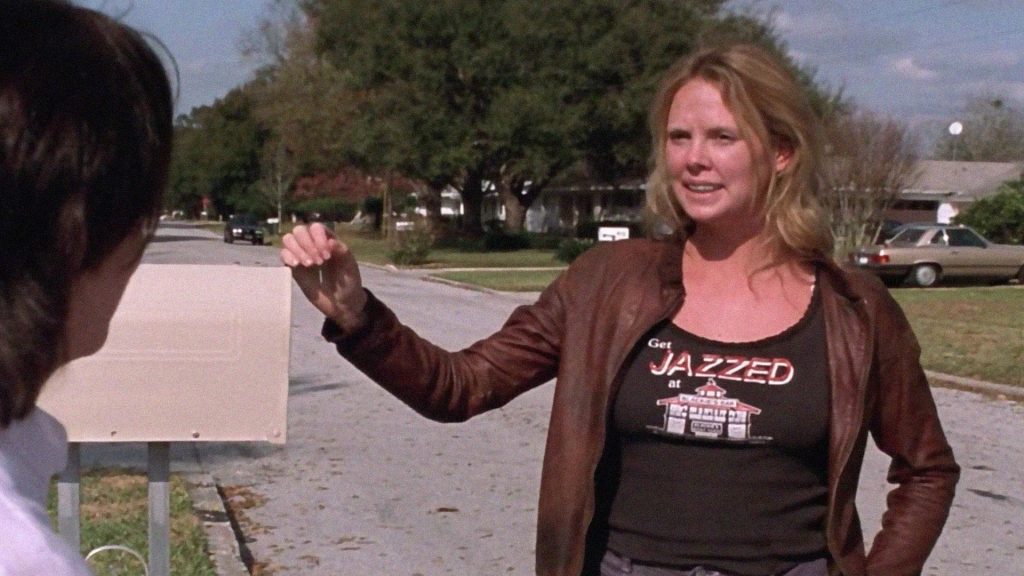
Theron, through her production company, has been instrumental in bringing forth impactful stories, including producing critically acclaimed films like Monster and action-packed movies like Atomic Blonde, showcasing her commitment to diverse and compelling storytelling.
Image via Amazon.
Brad Pitt, Plan B Entertainment
Responsible for films including 12 Years a Slave (2013), The Big Short (2015), Moonlight (2016), and Once Upon a Time in Hollywood (2019), Plan B Entertainment is Brad Pitt’s production company. The film 12 Years a Slave (2013) won the Oscar for Best Motion Picture of the Year.
The company has also produced She Said (2022), Troy (2004), The Departed (2006), and the highly anticipated sequel Beetlejuice 2. The actor and film producer sold 60% of the company to media conglomerate Mediawan in 2022.
Jordan Peele, Monkeypaw Productions
Monkeypaw Productions is a film and television production company founded by filmmaker Jordan Peele in 2012. Known for its commitment to thought-provoking and socially relevant storytelling, Monkeypaw has produced groundbreaking works that often explore issues of race and identity.
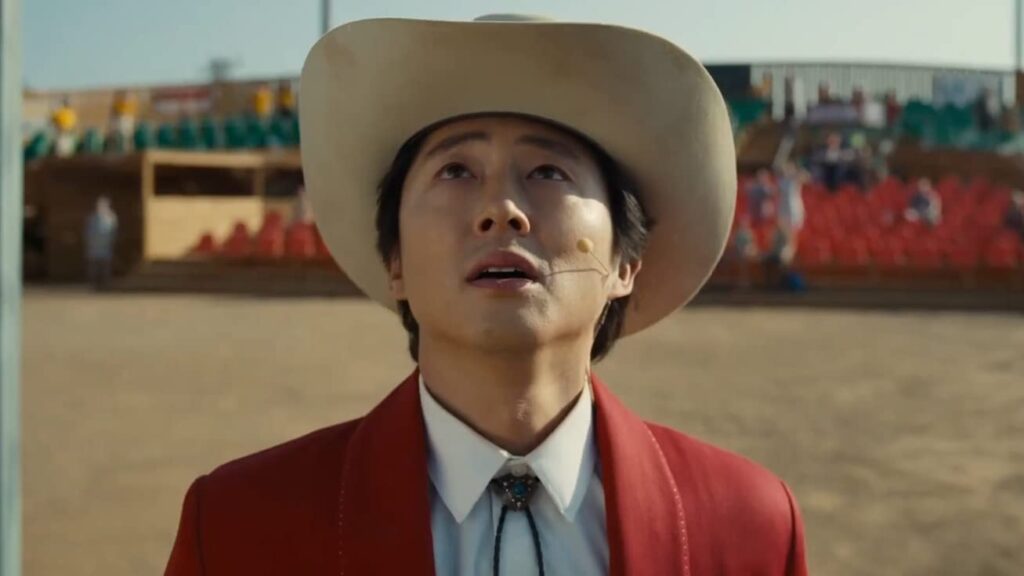
Peele’s directorial debut, Get Out, released under the Monkeypaw banner, received widespread acclaim for its unique blend of horror and social commentary, establishing the company as a force for innovative and impactful storytelling in the film industry. Additional films from Peele, including Us and Nope, are great examples of how to make compelling horror movies.
Image via Cinemablend.
Reese Witherspoon, Hello Sunshine
Beginning her acting career at the age of fourteen in The Man in the Moon (1991), Witherspoon’s resume went from strength to strength, starring in classic hits like Election (1999), Cruel Intentions (1999), and box-office successes, Legally Blonde (2001) and Legally Blonde 2 (2003)—the latter which she produced and from which she earned $15 million, fifteen-times the amount she got for the original.
Becoming increasingly frustrated with the lack of lead female roles and the majority of scripts sharing the common theme of women needing to be saved by men, she established her own production company. “I think it was literally one studio that had a project for a female lead over 30,” she said, “and I thought to myself, ‘I’ve got to get busy.’” Today, Witherspoon is one of the most successful female producers in the industry.
Elizabeth Banks, Brownstone Productions
Having taken on 70 roles in front of the camera so far, including those in major hits like The 40-Year-Old Virgin (2005), Spider-Man 2 and 3 (2004, 2007), and The Hunger Games franchise, Banks has certainly accrued some Hollywood brownie points through the years. Using those points and knowing the difficulties faced by actresses in Hollywood after a certain age, Banks took a pragmatic turn to production in 2009, creating Brownstone Productions with husband Max Handelman.
“There was a group of us girls coming up … a lot of us surviving, some of us not,” recalling her days at auditions with Tara Reid, “We’re not all still here.” The company earned Universal $113 million at the box office on a $17 million budget and another $103 million in home video sales for its surprising hit Pitch Perfect in 2012, which she also starred in and directed the sequel Pitch Perfect 2. In 2023, she produced the film Cocaine Bear.
Sandra Bullock, Fortis Films
Boasting an illustrious acting career that began with the motion picture Hangman in 1987, Bullock has continued to capture audience’s hearts with her girl-next-door persona. Her big breakthrough came when she starred alongside Keanu Reeves in the famous thriller Speed (1994), shortly followed by the romantic comedy While You Were Sleeping (1996), earning her a Golden Globe nomination.
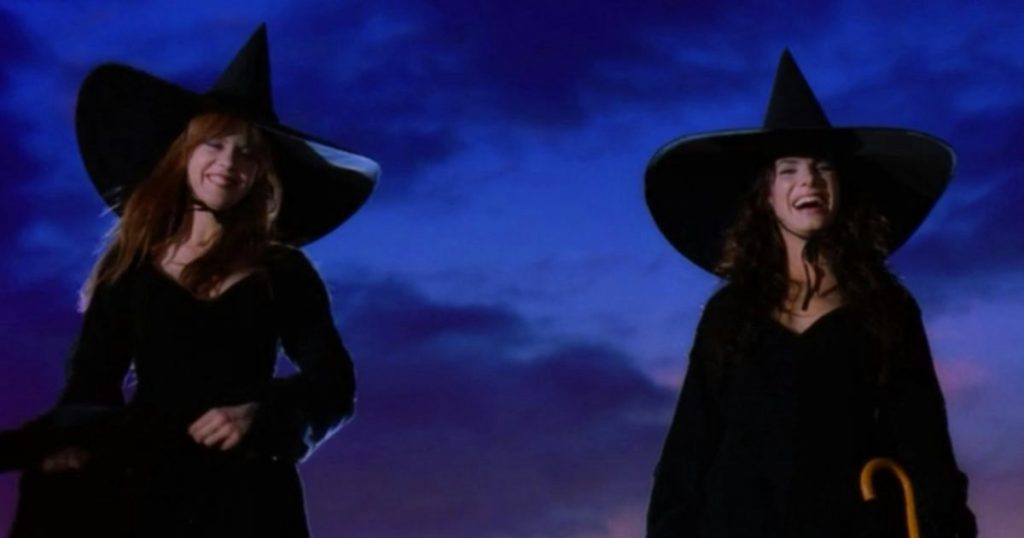
It was in this genre she really soared, founding the production company Fortis Films in 1998, which went on to produce a string of well-received romantic comedies and dramas she also starred in. Some of them include cult classic Practical Magic (1998), Hope Floats (1998), Miss Congeniality 1 and 2 (2000, 2005), Two Weeks Notice (2002) and The Proposal (2009).
Image via Collider.
Spike Lee, 40 Acres and a Mule Filmworks
40 Acres and a Mule Filmworks is a film production company founded by the iconic filmmaker Spike Lee in 1986. Named after the unfulfilled promise of reparations to freed slaves, the company has played a pivotal role in shaping the landscape of African American cinema.
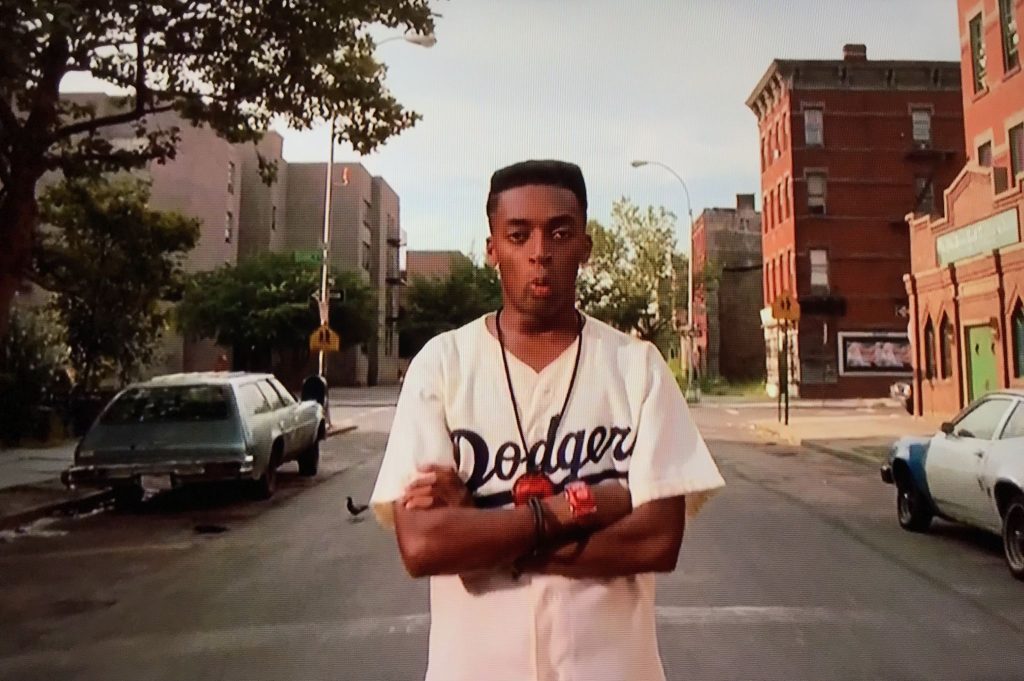
Spike Lee, known for his bold and socially conscious storytelling, has directed numerous acclaimed films under the 40 Acres and a Mule Filmworks banner, including Do the Right Thing, Malcolm X, and BlacKkKlansman, earning him critical acclaim and cementing his legacy as a groundbreaking filmmaker and advocate for racial justice in the film industry.
Image via Chron.
Margot Robbie, LuckyChap Productions
Since her big break, Margot Robbie has scored major roles beside Will Smith in Focus (2015), in Scorsese’s The Wolf of Wall Street, and again (alongside many other big names) in DC Comics’ antihero film, Suicide Squad. Her last iconic role as Barbie, in Greta Gerwig’s film adaptation of everyone’s favorite doll, has cemented her as an industry icon.
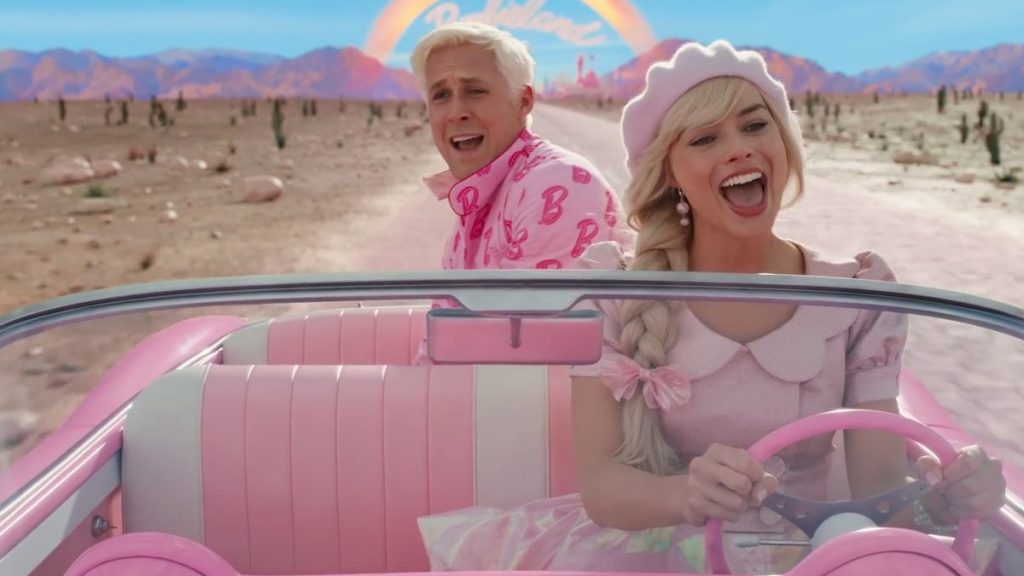
Robbie also loves the role of Producer, with her production company creating films like I, Tonya (2017), Birds of Prey (2020), and Promising Young Woman (2020), as well as Barbie (2023). Admitting that she’s really enjoying being behind the lens at LuckyChap Productions, Robbie has said, “The experience has really opened my eyes to the world of indie film producing,” she said. “It’s such a hustle—extremely difficult but very rewarding.”
Image via Mashable.
Halle Berry, 606 Films
Halle Berry is an Academy Award-winning actress known for her versatile performances in films such as Monster’s Ball and Catwoman. While primarily recognized for her acting career, Berry has also stepped into producing with her production company, 606 Films. The company produced Kidnap (2017) and the television series Boomerang (2019-2020). Derived from the 1992 American romantic comedy film, the fresh series followed the journeys of Jacqueline Boyer’s son and Marcus and Angela Graham’s daughter as they strive to carve their own path, breaking free from their parents’ legacies and establishing a legacy of their own.
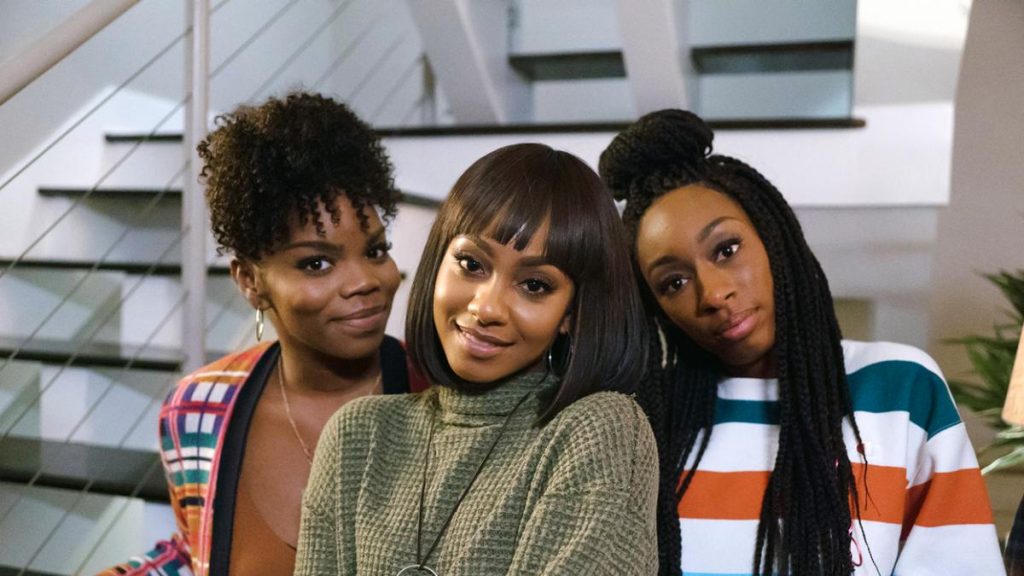
Executive-produced by Berry and Lena Waithe, the show revolves around the lives of the offspring of the original film’s characters as they navigate love, careers, and friendships in modern-day Atlanta. The series received praise for its contemporary take on relationships and commitment to addressing social issues while incorporating humor and drama.
via IMDB.com.
Pursue Acting, Producing, and More at NYFA
Acting and producing offer a unique symbiosis in the entertainment industry, allowing actors to have a more profound impact on the storytelling process. Actors-turned-producers gain creative control, allowing them to shape narratives, champion diverse voices, and contribute to developing meaningful projects. This dual role enhances an artist’s versatility and fosters a deeper understanding of filmmaking, creating a more well-rounded and influential presence in the industry.
Ready to explore the exciting worlds of filmmaking and producing? NYFA offers a variety of degrees, such as our BFA in Entertainment Media and our Online MA in Entrepreneurial Producing and Innovation, for aspiring storytellers. Learn more about our programs today!